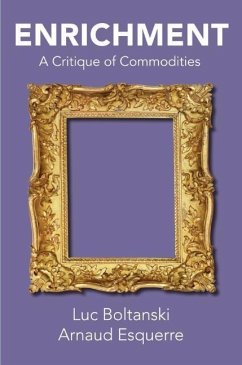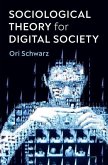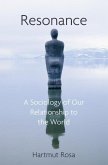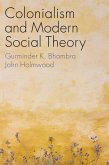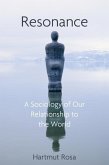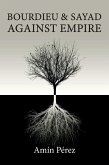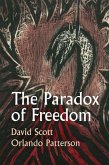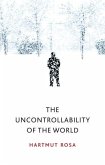This book offers a major new account of modern capitalism and of the ways in which value and wealth are created today. Boltanski and Esquerre argue that capitalism in the West has recently undergone a fundamental transformation characterized by de-industrialization, on the one hand, and, on the other, by the increased exploitation of certain resources that, while not entirely new, have taken on unprecedented importance. It is this new form of exploitation that has given rise to what they call the 'enrichment economy'.
The enrichment economy is based less on the production of new objects and more on the enrichment of things and places that already exist. It has grown out of a combination of many different activities and phenomena, all of which involve, in their varying ways, the exploitation of the past. The enrichment economy draws upon the trade in things that are intended above all for the wealthy, thus providing a supplementary source of enrichment for the wealthy people who deal in these things and exacerbating income inequality.
As opportunities to profit from the exploitation of industrial labour began to diminish, capitalism shifted its focus to expand the range of things that could be exploited. This gave rise to a plurality of different forms for making things valuable - valuing objects in terms of their properties is only one such form. The form that plays a central role in the enrichment economy is what the authors call the 'collection form', which values objects based on the gap they fill in a collection. This valuation process relies on the creation of narratives which enrich commodities.
This wide-ranging and highly original work makes a major contribution to our understanding of contemporary societies and of how capitalism is changing today. It will be of great value to students and scholars in sociology, political economy and cultural studies, as well as to anyone interested in the social and economic transformations shaping our world.
The enrichment economy is based less on the production of new objects and more on the enrichment of things and places that already exist. It has grown out of a combination of many different activities and phenomena, all of which involve, in their varying ways, the exploitation of the past. The enrichment economy draws upon the trade in things that are intended above all for the wealthy, thus providing a supplementary source of enrichment for the wealthy people who deal in these things and exacerbating income inequality.
As opportunities to profit from the exploitation of industrial labour began to diminish, capitalism shifted its focus to expand the range of things that could be exploited. This gave rise to a plurality of different forms for making things valuable - valuing objects in terms of their properties is only one such form. The form that plays a central role in the enrichment economy is what the authors call the 'collection form', which values objects based on the gap they fill in a collection. This valuation process relies on the creation of narratives which enrich commodities.
This wide-ranging and highly original work makes a major contribution to our understanding of contemporary societies and of how capitalism is changing today. It will be of great value to students and scholars in sociology, political economy and cultural studies, as well as to anyone interested in the social and economic transformations shaping our world.
?Boltanski and Esquerre propose a grammar of things and their value that sheds new light on the transformations of contemporary capitalism. An original and powerful work which will undoubtedly stimulate much debate.?
Clement Lefranc, Sciences humaines
?A seminal book.?
European Journal of Sociology
"Expansion of industry blocked, capitalism in France?and not only there?seeks shelter in the production by select artisans and artists of 'authentic' goods for the winners of globalization. Enrichment is a brilliant and deeply disturbing study of this grim involution, by which a nation?s history and identity become its last resource, and new forms of labor market inclusion and exclusion disarm traditional criticism of exploitation. This book is a foundation stone in a sociology of dystopia for our times."
Charles Sabel, Columbia Law School
?Uplifting, fun, accessible to all, Enrichment is the most scholarly and relevant analysis to finally make sense ofthe current 'madness' of the art market. It fascinates speculators, disconcerts art lovers, and arouses public distrust. But the observation is obvious to all: in our post-industrial societies, heritage, luxury goods and even contemporary art are the only source of wealth that we have. They are now part of the main foundations of our economy."
Catherine Millet, founder and editor of Art Press
Clement Lefranc, Sciences humaines
?A seminal book.?
European Journal of Sociology
"Expansion of industry blocked, capitalism in France?and not only there?seeks shelter in the production by select artisans and artists of 'authentic' goods for the winners of globalization. Enrichment is a brilliant and deeply disturbing study of this grim involution, by which a nation?s history and identity become its last resource, and new forms of labor market inclusion and exclusion disarm traditional criticism of exploitation. This book is a foundation stone in a sociology of dystopia for our times."
Charles Sabel, Columbia Law School
?Uplifting, fun, accessible to all, Enrichment is the most scholarly and relevant analysis to finally make sense ofthe current 'madness' of the art market. It fascinates speculators, disconcerts art lovers, and arouses public distrust. But the observation is obvious to all: in our post-industrial societies, heritage, luxury goods and even contemporary art are the only source of wealth that we have. They are now part of the main foundations of our economy."
Catherine Millet, founder and editor of Art Press

